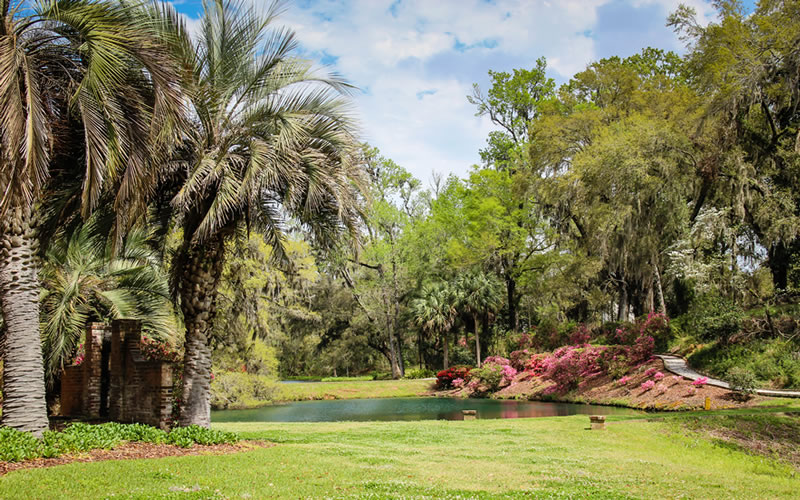S.C. Encyclopedia | Located on the Cooper River, Mepkin Abbey has a diverse history. In its early life the property served as the seven-thousand-acre rice plantation and family home of the eighteenth-century statesman Henry Laurens. Surviving traces of the plantation include a family cemetery and a large oak avenue. In 1936 the noted publisher Henry Luce, who established both Time and Life magazines, purchased the property.
While living at Mepkin, Luce and his wife, Claire Booth, hired the architect Edward Durell Stone to construct several buildings on the site, including a forester’s lodge, a laundry building, a pump house, and a farm manager’s house, made mostly of brick. Stone received his training at Harvard University and the Massachusetts Institute of Technology and spent his early career designing houses in the international style. The buildings at Mepkin reflect his modernist sensibility. The Luces also hired the landscape architect Loutrel Briggs, designer of many important gardens in South Carolina, to create a formal composition of camellias and azaleas overlooking the Cooper River.
In 1949 the property was donated to a religious community in keeping with Mrs. Luce’s wishes. By the 1960s the property had become a monastery that housed the Trappist monks of the Cistercian Order. The monks of Mepkin Abbey began operating an egg farm, which was still functioning in the early twenty-first century, with several buildings on the property associated with that function. The site also includes an austere Cistercian church in the shape of a cross. In its transition from a rice plantation to a monastery and egg farm, Mepkin Abbey reflects an unusual blending of tradition, modern aesthetics, and spiritual transcendence, making it one of the most unique places in South Carolina. [These days, the Abbey offers mushrooms instead of eggs.]
– Excerpted from an entry by Lindsey Gertz. To read more about this or 2,000 other entries about South Carolina, check out The South Carolina Encyclopedia, published in 2006 by USC Press. (Information used by permission.)




 We Can Do Better, South Carolina!
We Can Do Better, South Carolina!

























One Comment